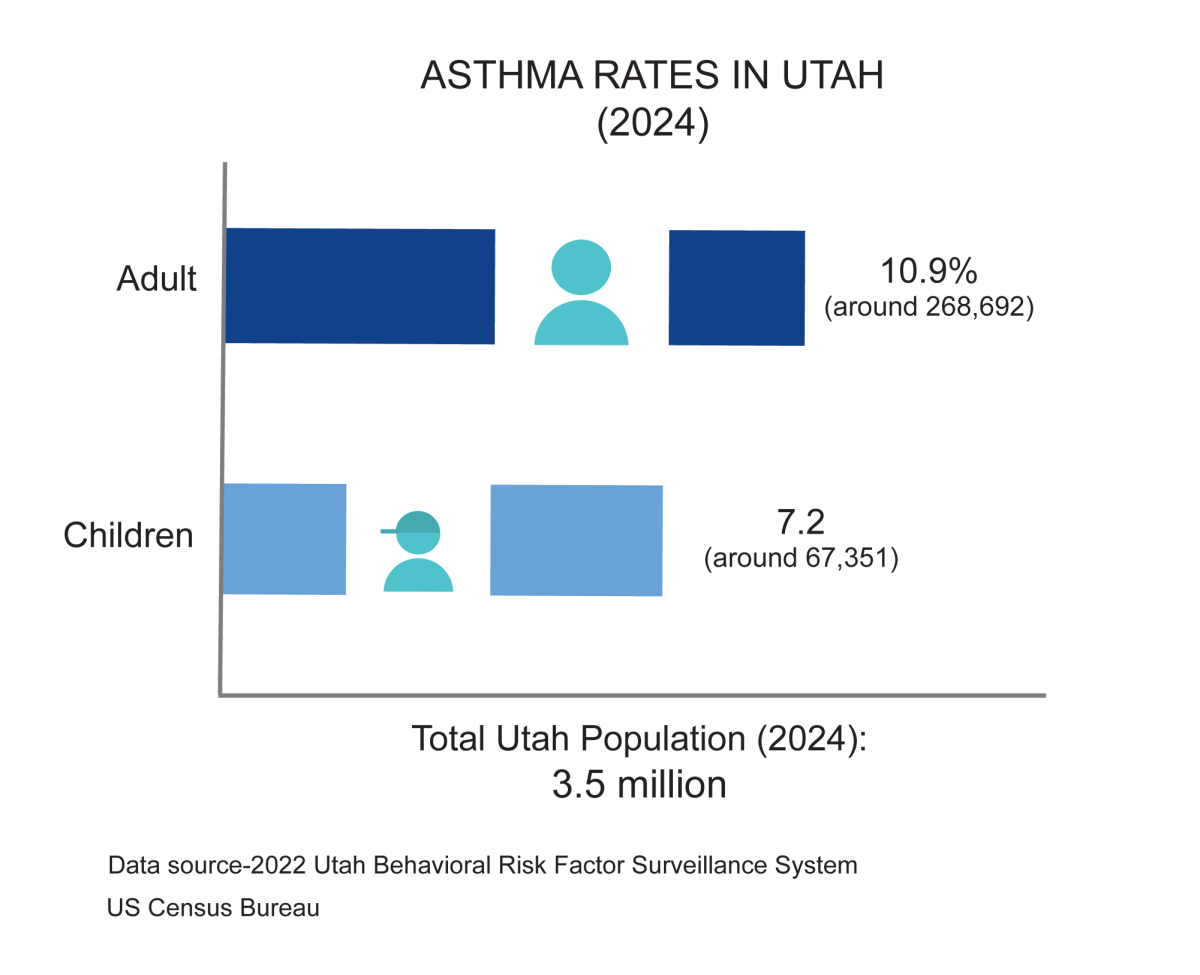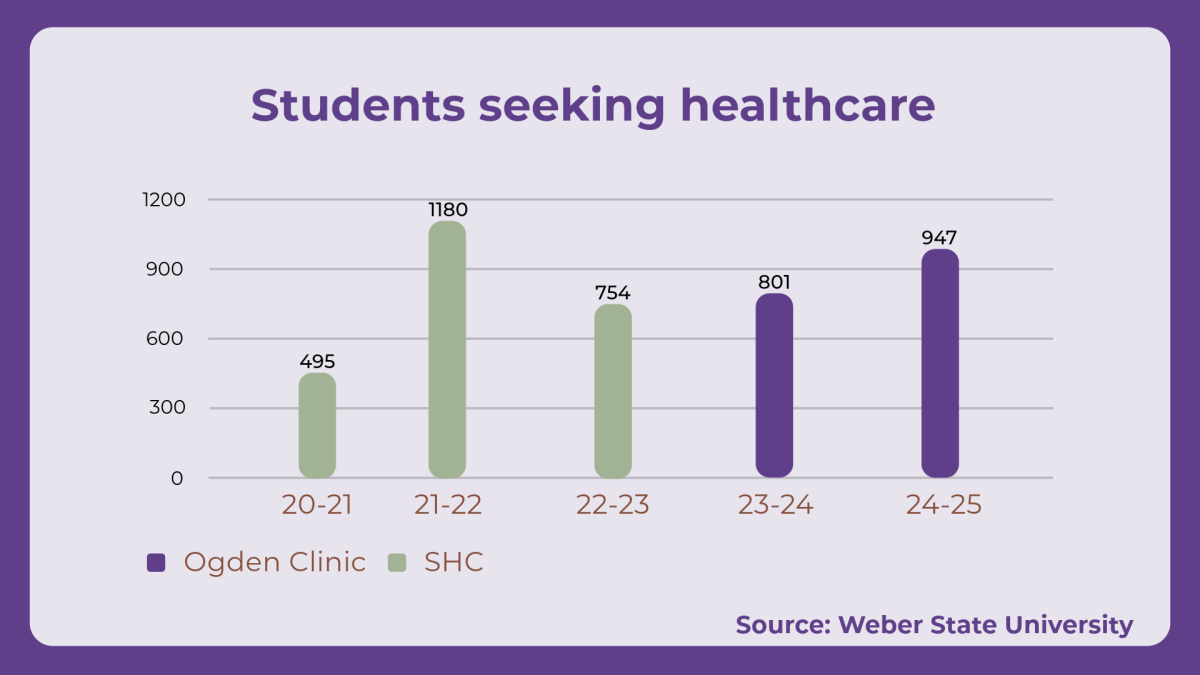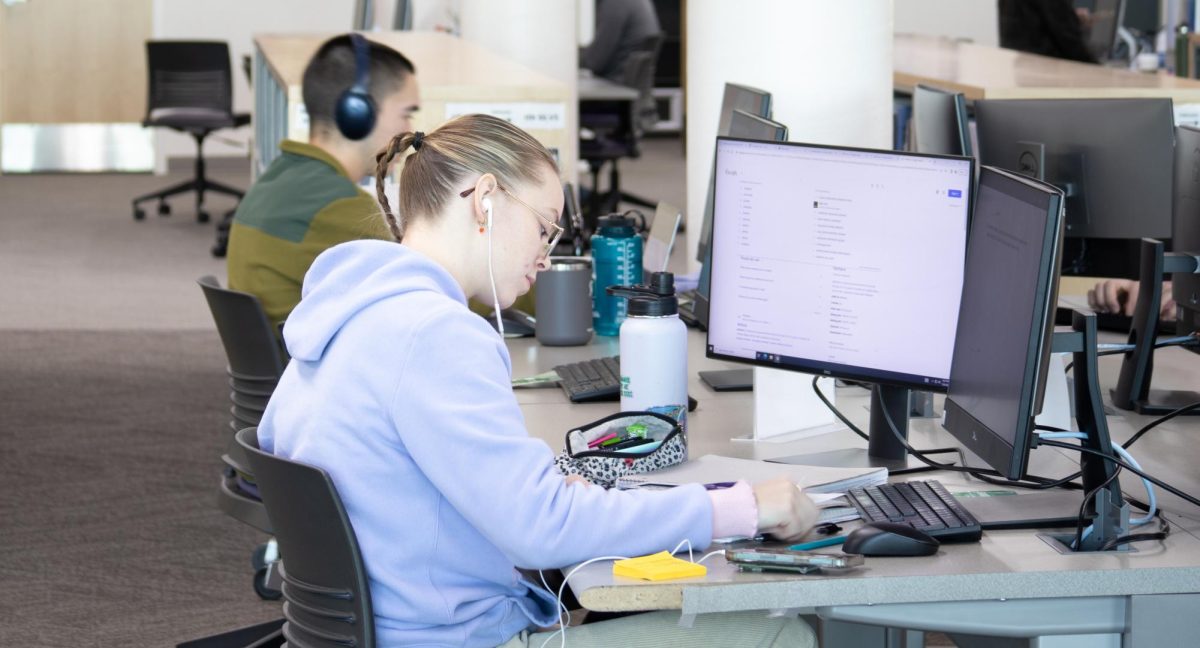
A panel that covered the realities of obesity and health was held last Thursday at Weber State University.
The Reality of Obesity panel was run by the diversity and unity branch of WSUSA in the Shepherd Union. The panel discussed the reality of obesity, as well as the reality of skinny and why one does not exist without the other.
Theresa Kay, a psychology professor, and Cody Brown, the vice president of the diversity and unity branch of WSUSA, headed up the panel to inform students about the reality of obesity.
“There’s a lot of prejudice in our culture against people who are overweight and obese,” Kay said.
The panel members told people to do what was healthy for their bodies and they agreed that skinny does not always mean healthy.
“I have been heavy, and socially you do get pushed down to a lower place,” Brown commented.
“I’ve read almost every nutrition book I can find,” Brown said. “When I did that I realized how misinformed society is about a proper diet.”
The United States is facing a high level of obesity within its population and the obesity threshold is lower than one might think.
“I would be in the overweight to obese category,” Kay said.
Kay discussed that while technically she would fall into this category, she eats healthy, works out on a regular basis and would rather pride herself on being healthy than being skinny.
Audience member Ryan Smith came well informed on the subject. Smith said that there are three different body types: ectomorph, endomorph and mesomorph.
Ectomorph is a smaller build, endomorph is a thicker build and mesomorph is an athletic build. These different frames are determined by bone structure and ability to stay slim, gain fat or gain muscle.
“If you are an endomorph trying to go into being an ectomorph it’s almost physically impossible,” Smith said. “Because the base frame is so solid. You can’t change your skeleton, basically.”
Kay and Brown both stressed how everyone is different and how something that may work for one person may not work for another.
“Certainly I want to slim down a little bit but not at the price of sacrificing quality of food or anything along those lines,” Kay said.
This society shames the heavier and praises those who are skinny. Kay talked about extreme diets that several people do and how people need to be careful not to prioritize appearance over health. A couple of these diets were the Paleo diet and the Atkins diet. According to Kay these extreme diets don’t work.
A healthier lifestyle is not necessarily the easiest route though, and is heavily based on upbringing.
“We can be conditioned, if you will,” Kay said. “Food can be incredibly comforting.”
Several audience members mentioned different ways to encourage people who are taking steps to a healthier life without mentioning their weight or size.
Bailey Boothe, a junior in attendance, recommended just not commenting on people’s weight.
“Maybe just commenting they look really happy,” Booth suggested.
Overall the panel focused on encouraging students to find out what is healthiest for them and encouraged students to be “their healthiest selves.”













